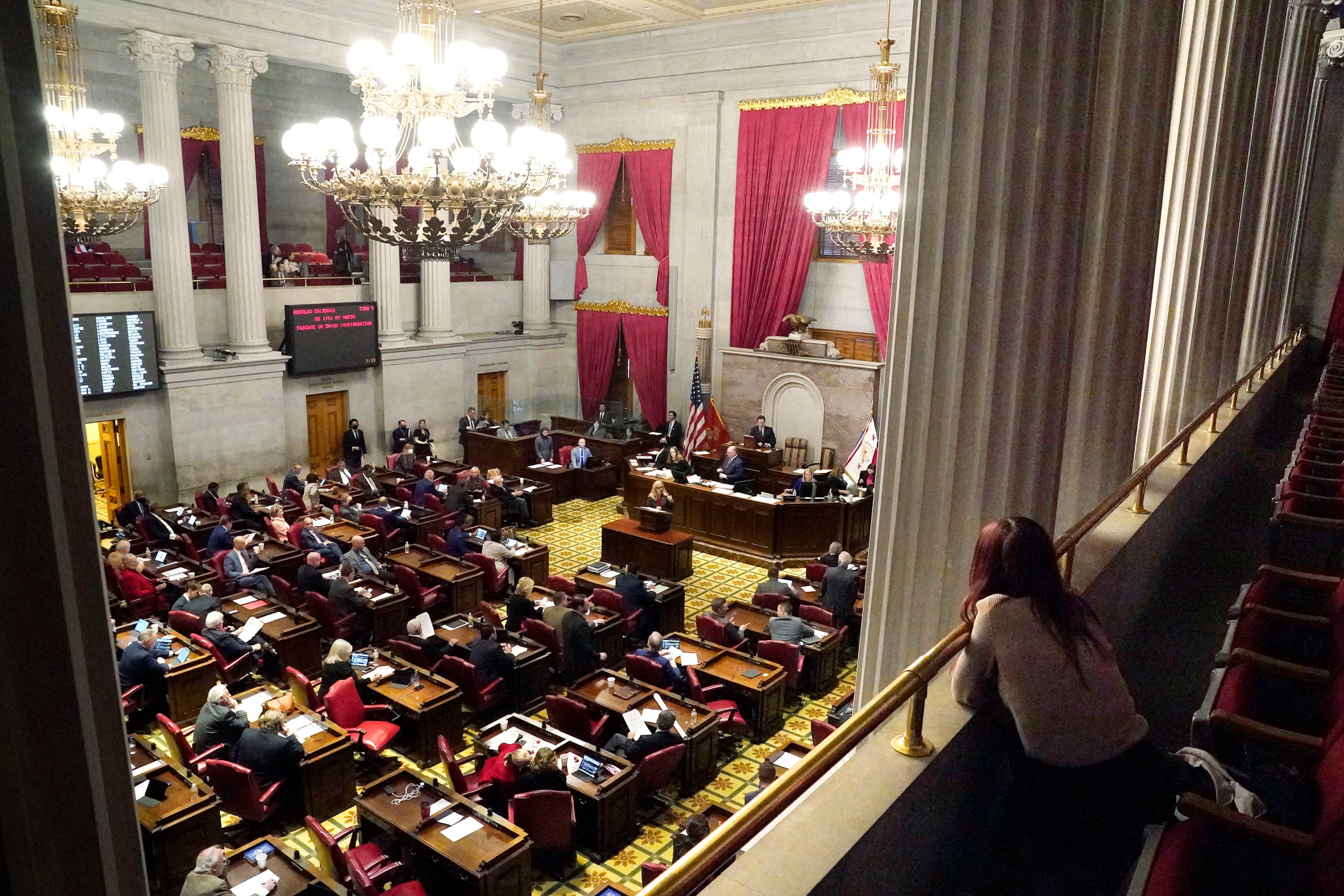Tennessee’s legislature is sending a school library bill to Gov. Bill Lee’s desk aimed at scrutinizing library materials for “age appropriateness.”
Along partisan lines, the GOP-controlled House of Representatives voted 73-21 Monday night to approve the Republican governor’s proposal following the Senate’s quick passage of the measure last month.
The legislation would require each public school library to publish the list of materials in their collections and periodically review them to make sure they are “appropriate for the age and maturity levels of the students who may access the materials.”
A separate school library bill, which could allow librarians to be charged with a criminal offense if “obscene” material is found in a school’s collection, may be discussed on Wednesday in House and Senate education committees.
The scrutiny comes amid a national spike in book challenges and bans in both school curriculum and libraries, as well as prohibitions against teaching about systemic racism.
In East Tennessee, the McMinn County school board’s decision in January to pull “Maus,” a Pulitzer Prize-winning graphic novel about the Holocaust, drew international attention. And Tennessee was among the first states last year to enact a law prohibiting K-12 teachers from discussing certain “divisive concepts,” especially related to race and gender.
Lee’s proposal, dubbed the Age-Appropriate Materials Act of 2022, aims to standardize school library policies to require periodic reviews beginning this fall. It would be up to each district to define what is considered age-appropriate in their community.
The legislation also requires school boards to establish processes for receiving public feedback and removing books that don’t meet that standard.
Most school libraries across Tennessee already have online search tools where parents and others can look up their content, but some libraries do not, especially in smaller districts that do not have a dedicated librarian for each school. All districts already have processes for reviewing book challenges.
Democrats charged that changes under the bill could bypass the expertise of librarians and unnecessarily consume school boards with book challenges. They warned of the prospect of costly litigation over First Amendment rights that guarantee access to information.
“Somehow we’ve made it from the days of Andrew Jackson until now without this new administrative regime that you’re setting up in every school district in the state,” said Rep. Mike Stewart of Nashville.
Another Nashville Democrat, Rep. John Ray Clemmons, said age-appropriateness is a subjective judgment that could create uneven access to materials across districts — or even within a single school.
“I’m truly concerned about limiting the information and access to knowledge and resources for our children to get a full and appropriate education in our schools. This seems overly vague,” Clemmons said.
But Rep. Scott Cepicky, presenting the governor’s bill, said the measure aims to set up a review process, not ban books.
“I have total faith in our local school boards and the people that support them to make sure this process will be put together seamlessly,” said Cepicky, a Republican from Culleoka.
The other school library bill, sponsored by Cepicky and Sen. Joey Hensley of Hohenwald, would prohibit any library from making “obscene materials or materials harmful to minors” available to students in school libraries. Some parents and school officials have charged that’s a problem in Tennessee, although the state’s professional association for school librarians says no obscene materials are in their collections.
The legislation, which drew contentious debates in House criminal justice committees in recent weeks, also would remove the exemption currently protecting librarians and other school personnel from being charged with a criminal offense over the presence of such materials in libraries. And it would require school officials to remove any challenged material for at least 30 days until the local school board or charter school governing body can make a determination.
Katie Capshaw, president the Tennessee Association of School Librarians, said her organization had several meetings with the governor’s office and views Lee’s proposal as preferrable to the Cepicky-Hensley bill. In a statement Monday night, she called the governor’s bill “best for allowing each professional, trained school librarian to develop and maintain a collection that is appropriate for their school community while also giving parents a voice in their child’s education.”
Marta W. Aldrich is a senior correspondent and covers the statehouse for Chalkbeat Tennessee. Contact her at maldrich@chalkbeat.org.







